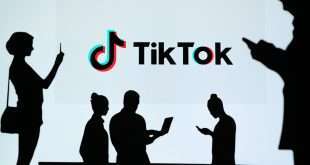In the fast-paced world of web technology and web development, data integrity is paramount to ensuring smooth technical support operations. As data becomes increasingly critical for businesses and users alike, any compromise to its integrity can lead to disastrous consequences. Enter blockchain technology, the revolutionary solution that is transforming the way we handle data in technical support. In this comprehensive blog, we will explore how blockchain is reshaping the landscape of data integrity, providing advanced web technologies, and ensuring secure and efficient technical support. Let’s dive in!
Understanding Blockchain and Its Role in Data Integrity
Blockchain, originally known as the underlying technology behind cryptocurrencies, has evolved into much more than that. At its core, it is a decentralized, immutable ledger that records data transactions across multiple nodes in a secure and transparent manner. By design, it resists any alterations or deletions, making it an ideal solution for safeguarding data integrity. When technical support teams adopt blockchain, they gain the ability to ensure the veracity and accuracy of crucial information.
Blockchain ensures data integrity by:
- Using cryptographic hashing to create unique identifiers for each data block.
- Distributing the data across a network of nodes, making it resistant to single-point failures.
- Employing consensus mechanisms to validate and approve new data entries.
- Implementing smart contracts to automate data validation and integrity checks.
Securing Customer Data with Blockchain
Data breaches are a significant concern for businesses, as they can lead to compromised customer information and reputational damage. Blockchain, with its robust security features, offers a viable solution for safeguarding sensitive customer data. Instead of storing all data in a central database vulnerable to attacks, blockchain distributes encrypted data across its network. Hackers would need to breach multiple nodes simultaneously, making it practically impossible to alter or steal data unnoticed.
Blockchain’s secure nature also enhances trust between customers and technical support providers. Customers can rest assured that their data is well-protected, building strong relationships and loyalty.
Immutable Data Logs for Effective Troubleshooting
In technical support, the ability to trace and analyze the history of events leading to an issue is crucial. Traditional centralized databases can be altered or manipulated, making the troubleshooting process unreliable. However, with blockchain’s immutability, each data entry is time-stamped and connected to the previous one, creating a transparent and traceable record.
When a technical support team investigates an incident, they can access an unchangeable log of events. This helps in accurately identifying the root cause, shortening the resolution time, and improving overall service efficiency.
Streamlining Data Sharing and Collaboration
Web technologies thrive on collaboration, with multiple teams and stakeholders working together on projects. However, sharing data across various platforms and networks can be cumbersome and vulnerable to errors. Blockchain simplifies this process by establishing a unified and secure platform for data sharing.
Teams can access a single source of truth, eliminating discrepancies and conflicts arising from data inconsistencies. Blockchain’s decentralized nature ensures that all parties have equal access to the latest and accurate information, enhancing collaboration and productivity.
Enhancing Cloud Infrastructure with Blockchain
Cloud computing has revolutionized web hosting and data storage. Blockchain complements cloud infrastructure by adding an extra layer of security and data integrity. When data is stored on the cloud using blockchain, it is encrypted, fragmented, and distributed across the network.
This decentralized storage model reduces the risk of data loss due to hardware failures or cyberattacks. In the event of a technical support issue, the data remains intact and accessible, facilitating seamless recovery.
Advancing Web Computing with Decentralization
Web computing, driven by central servers, can sometimes lead to performance bottlenecks and downtime. Blockchain’s decentralized architecture offers an alternative approach to web computing. By distributing computational tasks across a network of nodes, blockchain enables faster and more efficient processing.
This advancement in web computing ensures a smoother and more responsive experience for users, minimizing technical support requests related to performance issues.
Overcoming Challenges in Technical Support with Smart Contracts
Smart contracts are self-executing agreements that trigger predefined actions when specific conditions are met. In technical support, smart contracts can be utilized to automate routine tasks, such as ticket assignment, response prioritization, and escalation protocols.
By implementing smart contracts, technical support teams can streamline their workflows, reduce human errors, and ensure timely and efficient support to their customers.
Final Words
Blockchain technology has emerged as a game-changer in the world of technical support. Its decentralized and immutable nature ensures data integrity, enhances security, and streamlines collaboration. By integrating blockchain into their operations, businesses can elevate their web technologies, web development processes, and overall technical support, providing a robust and reliable experience to their users and customers. Embrace blockchain and stay ahead in the realm of web computing and data integrity!
Commonly Asked Questions
Q1: Is blockchain suitable for all types of data in technical support?
A1: While blockchain is highly effective for securing and ensuring the integrity of critical data, not all data in technical support requires blockchain implementation. It is best suited for sensitive customer information, data logs, and collaborative data sharing.
Q2: How does blockchain protect against data tampering?
A2: Blockchain’s immutability is the key to protecting against data tampering. Each data block contains a unique cryptographic hash generated based on the information it holds and the previous block’s hash. Any alteration in the data would change the hash, instantly alerting the network to the tampering attempt.
Q3: Does blockchain introduce any latency in technical support processes?
A3: Blockchain’s decentralized nature may introduce a minimal amount of latency compared to traditional centralized systems. However, advancements in blockchain technology are continuously improving its efficiency, and the benefits of enhanced data integrity outweigh the minor latency.
Q4: Can blockchain prevent all data breaches?
A4: While blockchain significantly reduces the risk of data breaches, no system can claim to be entirely hack-proof. Blockchain provides a robust layer of security but should be complemented by other cybersecurity measures to create a comprehensive defense strategy.
Q5: How can businesses adopt blockchain in their technical support operations?
A5: Businesses can adopt blockchain in their technical support by evaluating their data needs, identifying critical areas requiring data integrity, and implementing blockchain-based solutions with the help of experienced developers.
 webfily
webfily



